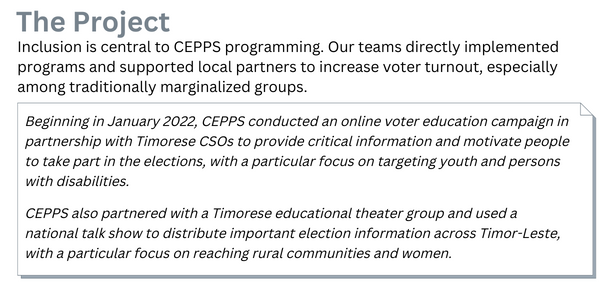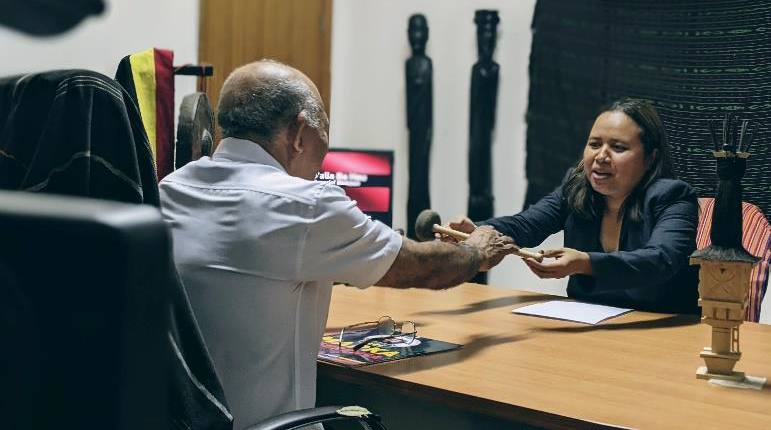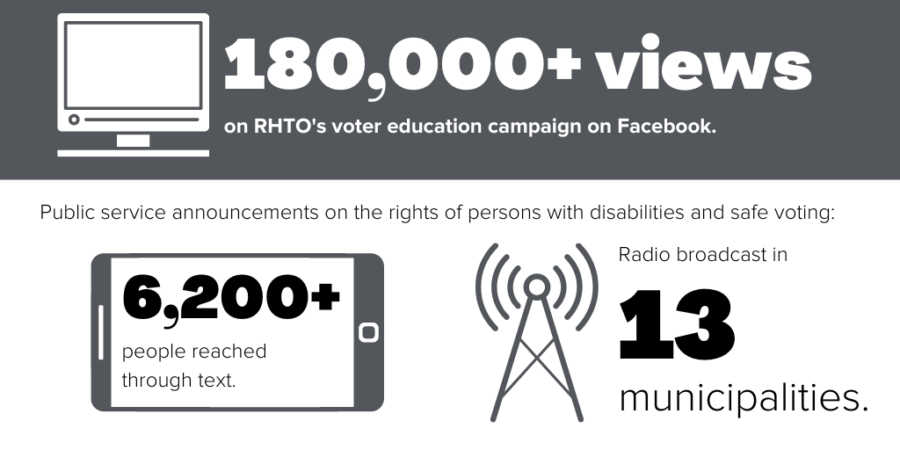 Earlier this year, Timor-Leste held its first elections since the COVID-19 pandemic began. The March election featured 16 candidates on the ballot, including four women. One month later, a runoff was held between the top two candidates, resulting in a victory for Jose Ramos-Horta. With generous support from the United States Agency for International Development under the Democratic Elections and Political Processes Award, CEPPS worked directly with local partners to support voter education and outreach initiatives. These initiatives focused on engaging women, youth, rural communities, and other traditionally marginalized groups.
Earlier this year, Timor-Leste held its first elections since the COVID-19 pandemic began. The March election featured 16 candidates on the ballot, including four women. One month later, a runoff was held between the top two candidates, resulting in a victory for Jose Ramos-Horta. With generous support from the United States Agency for International Development under the Democratic Elections and Political Processes Award, CEPPS worked directly with local partners to support voter education and outreach initiatives. These initiatives focused on engaging women, youth, rural communities, and other traditionally marginalized groups.
Data from the first round of the elections indicated an uptick in voter participation among marginalized communities. Overall voter turnout across all municipalities was 6% greater than during the 2017 presidential elections. CEPPS partners, including the International Foundation for Electoral Systems (IFES) and the International Republican Institute (IRI), contributed to the election’s success by ensuring effective participation through voter education. These efforts focused on several themes.
Getting To Know The Candidates: On the nationally televised talk show Ko’alia Ba Ha’u! (“Talk to Me!”), CEPPS supported efforts to help voters get to know the candidates. Each contender went through a “hot-seat” segment where they answered questions that emphasized the participation of youth, women, and other traditionally marginalized groups. After appearing on the show, many candidates voiced their appreciation for the opportunity to reach a national audience. In total, CEPPS/IRI produced five election special episodes, viewed by some 100,000 people during prime-time. These broadcasts provided a unique opportunity to share election information with a range of voters, including those in rural areas with TV but no internet access.

Mobilizing Youth Voters: CEPPS worked with a local civil society partner Alumni Parlamentu Foinsae Timor-Leste (APFTL) to get the youth vote out. Guided by youth leaders and civil society input, APFTL and CEPPS/IFES designed the “Our Voice, Our Vote, Our Future” educational campaign, focusing on voter safety during COVID-19, countering disinformation, and the importance of the youth vote. The effort to mobilize youth voters worked. Approximately 20 percent of voters were youth, including first-time youth voters. The campaign’s success was due to stakeholder involvement and the breadth of content including motivational and informational videos featuring three top Timorese athletes. Their support helped to boost public engagement and broaden interest in the campaign.
“After I saw the animation explaining how to participate in the election, I was very confident and didn’t hesitate to exercise my rights on election day.” – APFTL discussion participant
Promoting Women’s Electoral Participation: CEPPS supported voter education with its Timorese partner, Ba Futuru (“For the Future”). With this assistance, Ba Futuru produced 12 live theater performances in three municipalities, providing civic and voter education. These performances attracted large audiences with as many as 500 people at one performance. Additional shows were held in schools and markets to target youth, first-time voters, and women. Ba Futuru also filmed and produced short videos, encouraging women to get out to the polls on election day by informing them of voting procedures. In fact, many women in the audience told CEPPS/IRI that as first-time voters, the performances encouraged them to independently decide their vote.
“I am very happy that you came directly to share the information with us in the marketplace. In addition to selling products, I can also learn about women having the same right as men to vote for the leader that we like and want. So now I feel I am free to vote based on my conscience.” – Ba Futuru audience member
Promoting Disability Access: CEPPS focused on improving disability access to the elections, which has been a long-prevailing issue in the country. Local partner Ra’es Hadomi Timor Oan’s (RHTO) voter education videos highlighted the experiences of persons with disabilities, calling for improved inclusion and increased political participation for voters with disabilities. RHTO also widely distributed inclusive voter education materials on safety during COVID-19 and the rights of persons with disabilities on election day. Through this campaign, CEPPS/IFES and RHTO made sure that materials reached voters, using multiple information-sharing channels. The multi-pronged approach included public service announcements, which were distributed as SMS messages and broadcast on local radio stations. The campaign received positive feedback, including from a young woman with a disability, who got the confidence to vote, despite the stigma of persons with disabilities voting.
